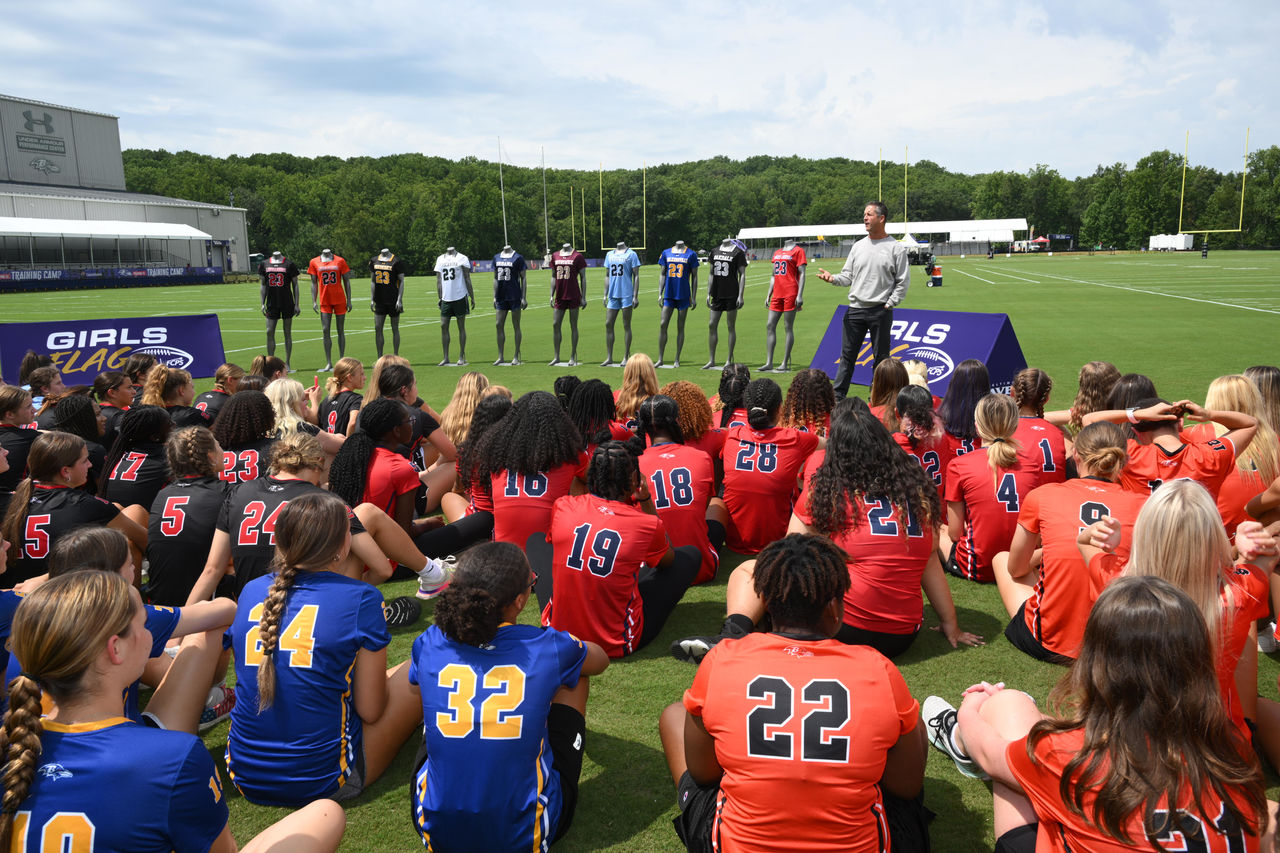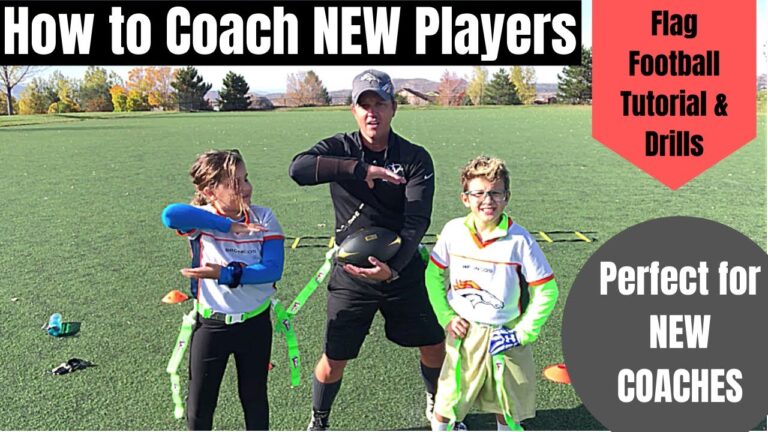Flag football is a thrilling sport that combines strategy, skill, and teamwork. Whether you are a seasoned coach or a novice looking to step up your game, mastering the playbook is key to success on the field. In this blog, we will explore the essential strategies and techniques to coach flag football like a pro. From designing effective plays to honing players’ agility and speed, we will delve into the crucial aspects of coaching that can elevate your team’s performance. Join us as we unlock the secrets to mastering the art of coaching flag football and leading your team to victory!
Introduction to Flag Football Coaching
Flag football is a dynamic and engaging sport that requires effective coaching to guide players to success. Coaching flag football involves nurturing skills, strategy development, and fostering teamwork among players.
The Role of a Flag Football Coach
Flag football coaches play a crucial role in the development of players. They not only teach the fundamentals of the game but also focus on sportsmanship and character-building.
Key Coaching Techniques
When coaching flag football, it is essential to focus on basic skills such as passing, catching, and flag-pulling techniques. Developing game strategies, implementing effective plays, and enhancing players’ understanding of the game are also key aspects.

Understanding the Fundamentals of Flag Football
Flag football is a popular non-contact version of American football where instead of tackling players, defenders remove a flag or flag belt from the ball carrier. Understanding the basics is essential to coaching this dynamic sport effectively.
The Game Setup
In flag football, teams usually consist of 5-8 players, with different variations allowing for more players. The field is typically 25-30 yards wide and 50 yards long. Players wear flags that are usually attached to a belt or shorts.
The objective is to score touchdowns by advancing the ball down the field and crossing the opponent’s goal line.
Offensive Strategies
Offense in flag football revolves around speedy plays, quick passes, and precise routes. Strategies involve setting picks, creating mismatches, and utilizing the agility of players to outmaneuver defenders.
Trick plays and misdirections are common to keep the defense off balance.
Defensive Tactics
Defense focuses on speed, agility, and the ability to read the offense’s plays. Players need to react swiftly to cover receivers, rush the quarterback, and pull flags to stop the advancement of the ball.
Communication is key to ensure proper coverage and prevent breakaways.

Creating a Winning Playbook for Your Team
When it comes to coaching flag football, having a winning playbook is essential. To start, focus on designing plays that cater to your team’s strengths and abilities to maximize success on the field. Incorporate a mix of offensive and defensive strategies, ensuring your playbook is well-rounded and adaptable during gameplay.
Strategic Play Designs
Develop specific plays that capitalize on your team’s speed, agility, and skillset. Use a combination of creative formations and effective route-running to outsmart the opponents. Include trick plays to keep the defense guessing and maintain a competitive edge.
Experiment with bold plays that can catch the opposing team off guard and lead to scoring opportunities.
Practice and Preparation
Regular practice sessions are crucial for refining plays and ensuring seamless execution during games. Conduct drills that focus on timing, communication, and teamwork to enhance cohesion among team members. Emphasize the importance of consistency and precision in every play.
- Simulate game situations during practice to familiarize players with different scenarios.
- Review game footage to analyze performance and make necessary adjustments.
Developing Effective Training Drills
One of the key aspects of coaching flag football like a pro is developing effective training drills that cater to the specific needs of the players. These drills should focus on improving various skills such as agility, speed, coordination, and teamwork.
Focus on Specific Skills
When designing training drills, it’s essential to identify the key skills that need improvement based on the performance analysis of the team. Creating drills that target these specific skills helps players to enhance their strengths and overcome their weaknesses effectively.
Varying Drill Intensity
To keep the players engaged and motivated, it’s crucial to vary the intensity of the training drills. This can be achieved by incorporating drills that range from low to high intensity levels, ensuring a balanced approach to skill development.
- Include warm-up exercises to prepare the players physically and mentally for the training session.
- Introduce competitive drills to simulate game-like situations and enhance players’ decision-making abilities.
- End the training session with cool-down drills to aid in the recovery process and reduce the risk of injuries.
Strategies for In-Game Success
When coaching flag football, implementing effective strategies is crucial for achieving success on the field. To ensure your team plays at their best, consider the following key strategies:
1. Proper Positioning and Movement
Emphasize the importance of proper positioning and movement during gameplay. Players should understand their roles on the field and how to move strategically to create scoring opportunities. Encourage quick changes in direction to outmaneuver opponents and gain an advantage.
2. Communication and Teamwork
Effective communication is essential in flag football. Encourage your team to communicate on the field through verbal cues and signals to coordinate plays. Foster a sense of teamwork and collaboration to enhance overall performance.
3. Adaptability and Flexibility
Flag football games can be dynamic and fast-paced, requiring teams to adapt quickly to changing situations. Teach your players to be flexible in their approach, making quick decisions based on the game’s evolving conditions.
Frequently Asked Questions
-
- What is flag football?
- Flag football is a version of American football where instead of tackling players to the ground, the defensive team must remove a flag or flag belt from the ball carrier to end a down.
-
- Why is coaching important in flag football?
- Coaching is important in flag football to teach players the necessary skills, strategies, and teamwork required to succeed in the game.
-
- What are some key skills to focus on when coaching flag football?
- Some key skills to focus on when coaching flag football include passing, catching, flag-pulling techniques, route-running, and defensive positioning.
-
- How can I improve as a flag football coach?
- To improve as a flag football coach, you can attend coaching clinics, study the game, communicate effectively with your players, and continuously seek feedback to refine your coaching techniques.
-
- What are some common strategies used in flag football?
- Common strategies used in flag football include spread formations, quick passing plays, misdirection, and effective flag-pulling defenses.
Final Thoughts: Mastering the Playbook for Flag Football Coaching
Mastering the art of coaching flag football requires a blend of strategy, communication, and passion for the game. By understanding the fundamentals of the sport, emphasizing teamwork, and fostering a positive learning environment, you can effectively guide your team to success. Remember to tailor your coaching style to the needs of your players, providing constructive feedback and encouragement along the way.
Creating a well-rounded playbook, focusing on skill development, and promoting sportsmanship are essential elements of effective flag football coaching. Keep in mind that patience, dedication, and a genuine love for the sport will set you apart as a pro-level coach. So, get out there, inspire your team, and watch them soar to new heights on the flag football field!





